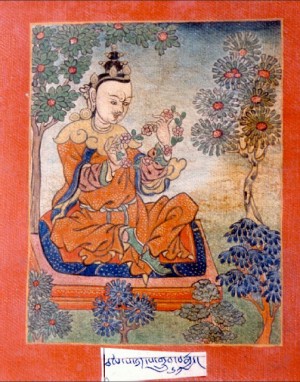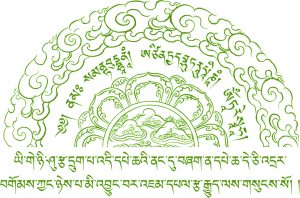The Kingdom of Campa was a beautiful place, filled with flowers, and riches and pleasures of all sorts bloomed for all of King Campaka’s subjects. The king enjoyed his power and good fortune to the fullest, not giving thought over the future.
One day, a yogin came to the palace begging for alms. The king received him in his summer house where he washed the yogin’s feet and made the holy man as comfortable as he can. The King than sat back and listen to the yogin’s discourse. He was so impressed that he asked the yogin to remain with him and become his priest, at which the yogin agreed.
While the king gave the yogin a tour around the palace and gardens, he asked if the yogin have met any kingdom or a king like him. The yogin said that Campa is one of a kind, but the yogin also said, “because of the heedless manner in which you live, the odor of your own body is far from agreeable. And yes, your kingdom far surpasses many others, but what does it matter when even you must exit this world empty-handed?”
The king was stunned, and for the first time in his life, he began to think beyond the pleasures of the day, and questioned himself about life, death, and rebirth.
A few days later, Campaka went back to his guru and begged for further instruction that would destroy all attachment; here he was taught about karma and was given initiation into the path of creative and fulfillment yoga. The king went off to meditate, but he constantly had the doubt if he was doing it correctly and often, the scent of the flowers would distract him. In despair, he went back to the yogin for assistance, and his guru devised a way to help him use the distraction as a stepping stone on the path.
Campaka meditated upon the flower of pure reality for 12 years. In time, he realized the truth of his guru’s words. Instinctuvely, he grasped that the reality of his own mind was totally inseparable from the peak experience that he sought and thus attained his goal. The king instructed his court and consorts in the dharma for many years before he was assumed bodily into the Paradise of the Dakinis.
em
Busque no site
Busca por Assunto
Artigos Recentes

Je Gedun Rinchen ‘s collected works – NYA
1. ཉ་༡༽ འབྲུག་ལུགས་ཀྱི་བསྟན་རྩིས་ཀུན་གསལ་མེ་ལོང་། 2. ཉ་༢༽ ཆོས་བཤད་སྤྱི་ལ་འཇུག་པའི་བློ་སྦྱོང་ལུང་གི་ཕྲེང་བ། 3. ཉ་༣༽ རྟེན་གསུམ་རབ་ཏུ་གནས་པའི་དགའ་སྟོན་དང་འབྲེལ་བའི་ཆོས་བཤད། 4. …Leia Mais »
5 Cores
As cinco cores, segundo o budismo tibetano representam: azul (espaço, …Leia Mais »
Dharmachakra
Roda do Dharma ou Dharmachakra Sanskrit: Dharmacakra; Tibetan: ཁོར་ལོ, Wylie: khor lo): representa …Leia Mais »
5 Perfeições
As cinco perfeições (Tib. ཕུན་སུམ་ཚོགས་པ་ལྔ་; Wyl. phun sum tshogs pa lnga) ou cinco certezas ((Tib. ཕུན་སུམ་ཚོགས་པ་ལྔ་; Wyl. phun …Leia Mais »
Produtos Chegando



 Cintamani - Meditação e Arte - Copyright 2020 - Todos os direitos reservados.
Cintamani - Meditação e Arte - Copyright 2020 - Todos os direitos reservados.